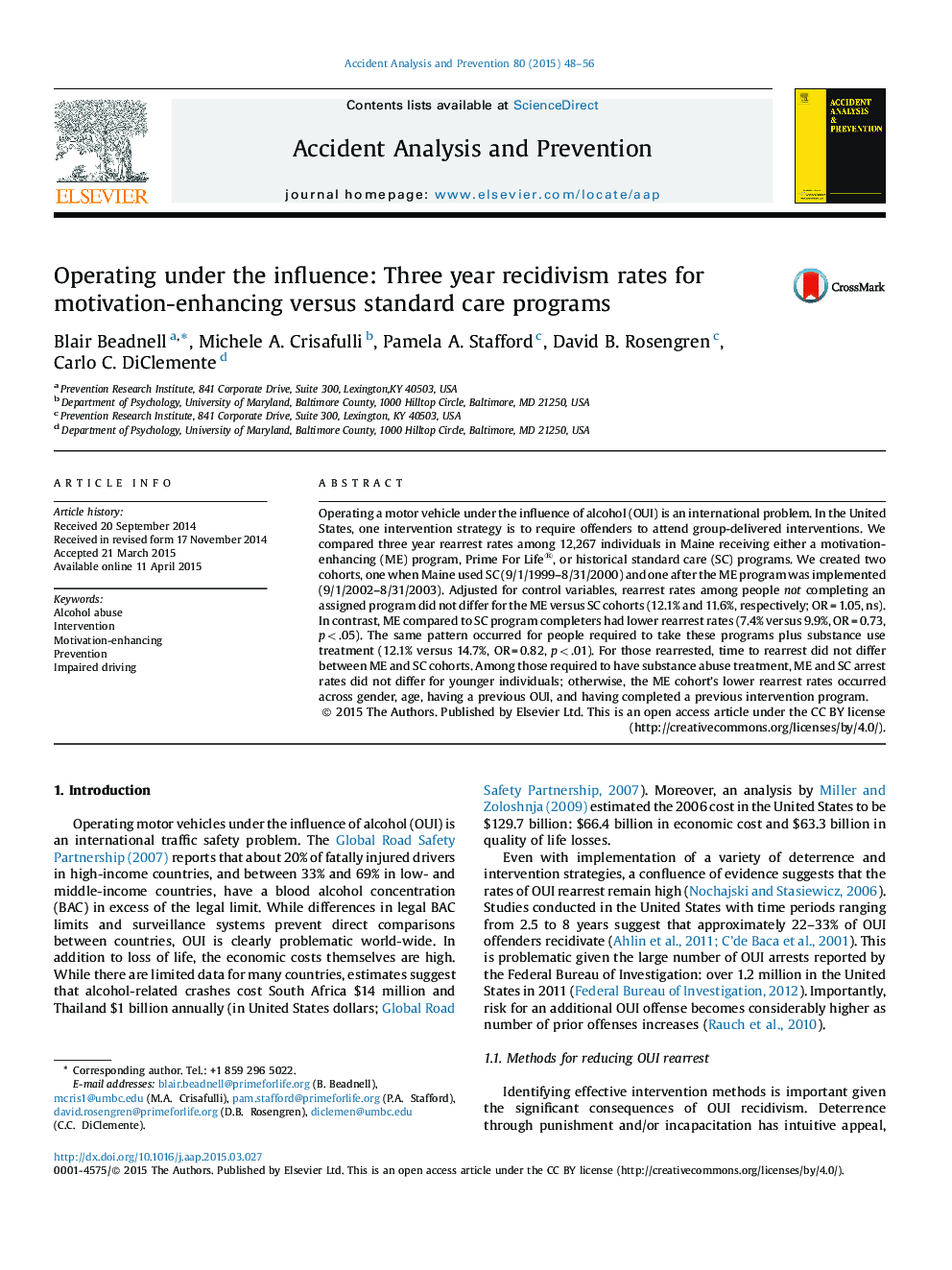| Article ID | Journal | Published Year | Pages | File Type |
|---|---|---|---|---|
| 6965628 | Accident Analysis & Prevention | 2015 | 9 Pages |
Abstract
Operating a motor vehicle under the influence of alcohol (OUI) is an international problem. In the United States, one intervention strategy is to require offenders to attend group-delivered interventions. We compared three year rearrest rates among 12,267 individuals in Maine receiving either a motivation-enhancing (ME) program, Prime For Life®, or historical standard care (SC) programs. We created two cohorts, one when Maine used SC (9/1/1999-8/31/2000) and one after the ME program was implemented (9/1/2002-8/31/2003). Adjusted for control variables, rearrest rates among people not completing an assigned program did not differ for the ME versus SC cohorts (12.1% and 11.6%, respectively; OR = 1.05, ns). In contrast, ME compared to SC program completers had lower rearrest rates (7.4% versus 9.9%, OR = 0.73, p < .05). The same pattern occurred for people required to take these programs plus substance use treatment (12.1% versus 14.7%, OR = 0.82, p < .01). For those rearrested, time to rearrest did not differ between ME and SC cohorts. Among those required to have substance abuse treatment, ME and SC arrest rates did not differ for younger individuals; otherwise, the ME cohort's lower rearrest rates occurred across gender, age, having a previous OUI, and having completed a previous intervention program.
Related Topics
Physical Sciences and Engineering
Chemical Engineering
Chemical Health and Safety
Authors
Blair Beadnell, Michele A. Crisafulli, Pamela A. Stafford, David B. Rosengren, Carlo C. DiClemente,
